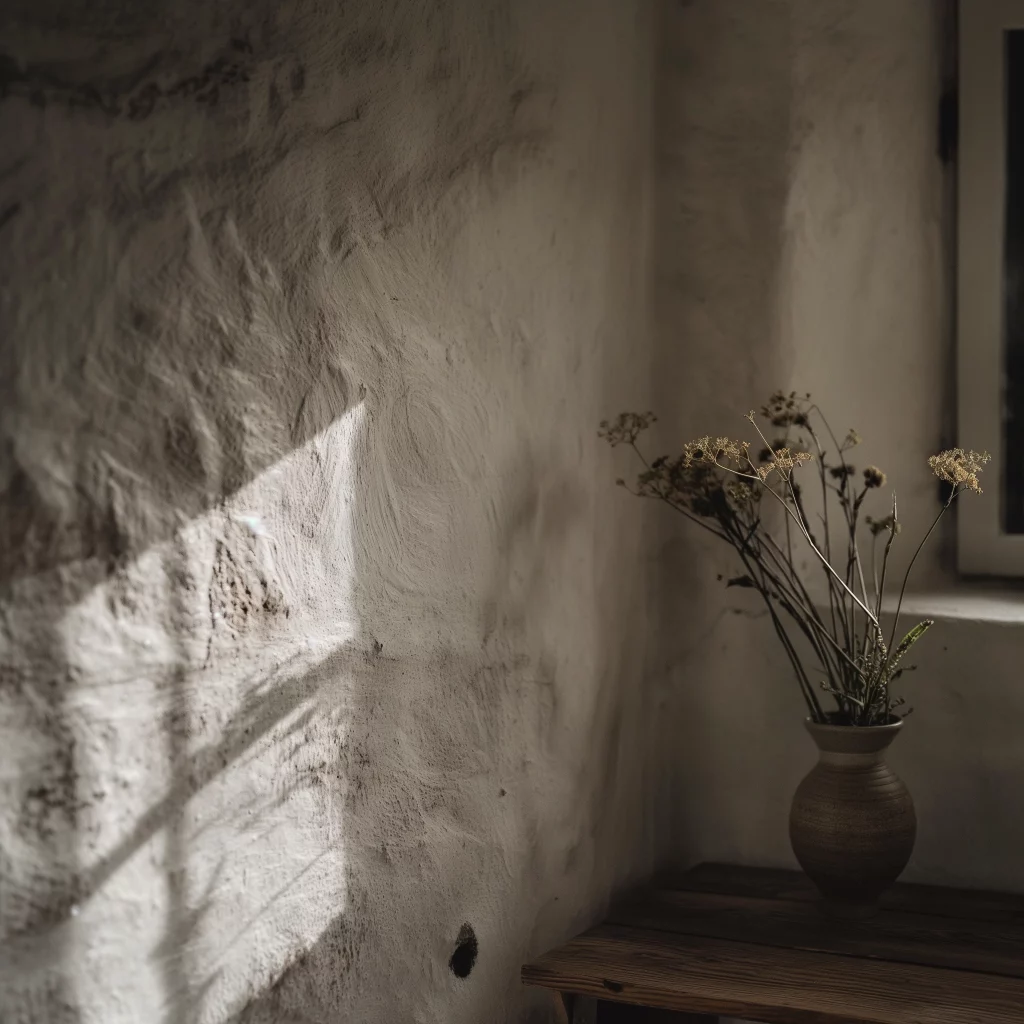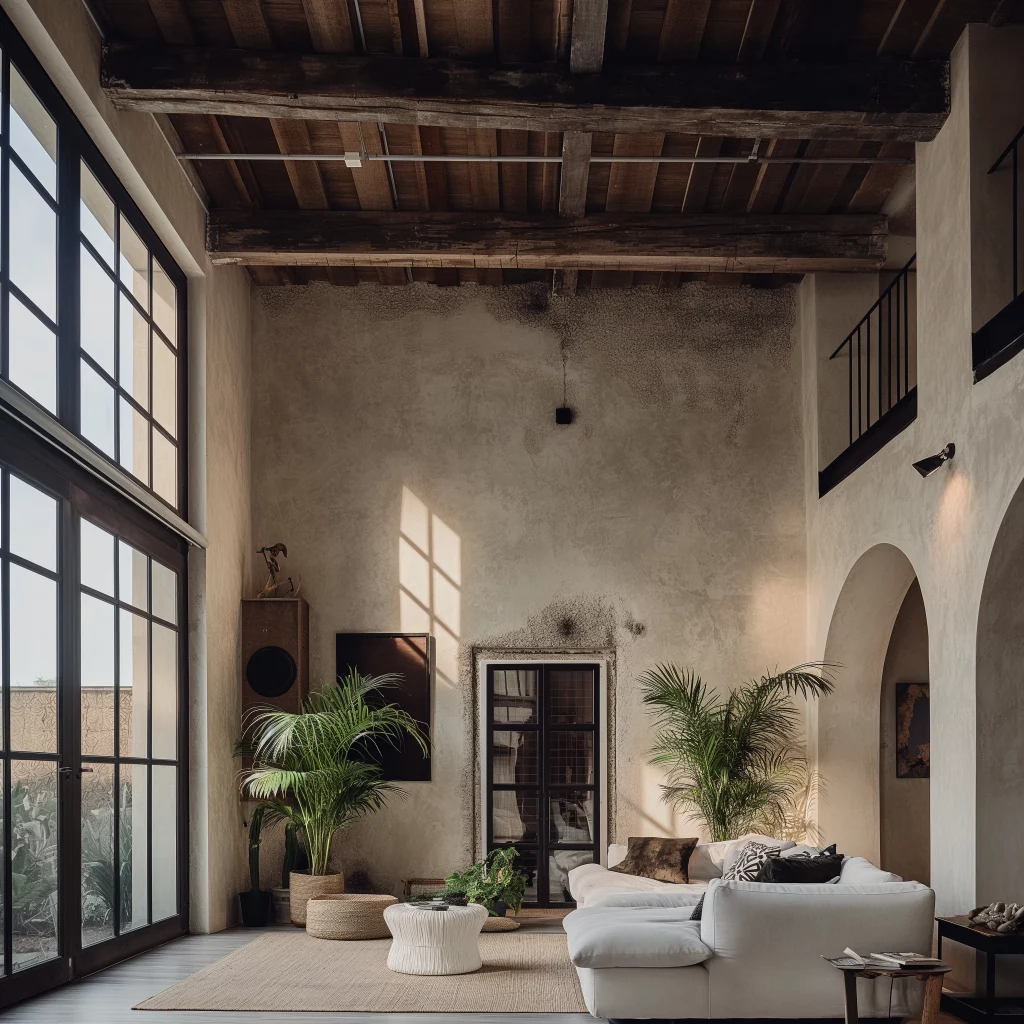Maintaining a holiday cottage to be both cosy and dry is paramount, not only for the comfort and health of its occupants but also to ensure the longevity and value of the property. The essence of achieving this lies in understanding and implementing key practices that combat the pervasive issue of damp.
Damp can lead to a myriad of problems, from structural damage to health concerns, making it a critical aspect for homeowners, particularly in the UK, to address. This article delves into essential tips and measures that can be taken to ward off damp, ensuring a warm, inviting, and healthy environment for all who dwell within.
Ventilation and Air Quality
Proper ventilation and air quality management are fundamental to ensuring a holiday cottage remains dry and inviting. The introduction of Positive Air Ventilation (PAV) systems is a critical strategy in this context. By circulating fresh, filtered air throughout the home, PAV systems create a slight positive pressure that effectively expels stale, moist air through natural leakage points. This method not only guarantees a continuous supply of clean air but also significantly diminishes the moisture levels that are a primary cause of damp conditions. Regularly opening windows in areas prone to high moisture, such as kitchens and bathrooms, further aids in improving airflow and lowering humidity levels.
When natural ventilation proves insufficient, particularly during the colder months, the role of mechanical ventilation becomes indispensable. Exhaust fans and air circulators work tirelessly to remove moist air and introduce dry air, ensuring a healthy and balanced indoor climate. This proactive approach to ventilation goes beyond merely preventing damp; it is essential for enhancing the overall health and well-being of occupants. Fresh, clean air can substantially reduce the risk of respiratory issues and allergens, creating a more enjoyable and comfortable living environment conducive to relaxation and escape in your holiday cottage.
For Ventilation and Air Quality Management in holiday cottages, understanding the importance of positive air ventilation systems and strategies for maintaining good airflow is crucial. More information can be found at Holiday Cottage Ventilation.
Heating and Insulation
Efficient heating is key to comfort and moisture control in homes, particularly during cold spells. Adjusting thermostats for a consistent temperature prevents condensation, a precursor to dampness, by eliminating cold surface areas. This careful balance ensures a warm environment without excessive energy use.
Insulation complements heating by reducing heat loss through walls, roofs, and pipes, keeping indoor temperatures stable and reducing the risk of damp conditions. Targeting areas prone to heat loss, such as windows and doors, with regular insulation checks and upgrades is critical. Together, efficient heating and insulation safeguard against damp, promoting a healthier and more energy-efficient home.
“Proper heating and insulation are essential in preventing damp. They keep the property warm and dry, stopping condensation that leads to mould. Think of them not as costs but as investments in your property’s health and integrity. Regularly update these systems to maintain a dry, healthy home.” – Phil Donno – London Damp Treatments.
Moisture Management
Managing moisture is vital for keeping your holiday cottage dry and comfortable. This involves minimising activities that produce excess moisture, such as cooking and drying clothes indoors. When these cannot be avoided, using exhaust fans or opening windows helps expel moist air outside. Dehumidifiers play a crucial role in high-humidity areas like basements, kitchens, and bathrooms, extracting moisture and thus reducing the risk of dampness. It’s important to keep an eye on humidity levels and adjust heating and ventilation to maintain a balanced indoor climate.
Promptly addressing leaks in plumbing, roofs, or windows is also essential to prevent water damage and protect the cottage’s structural integrity. Regular inspections and maintenance are key to identifying and fixing potential issues early, ensuring the property remains dry and promoting a healthy living environment. Detailed guidance is available at Damp and Mould in Your Holiday Home.
Structural Integrity
The battle against damp begins with the protection of the cottage’s structural integrity. This involves safeguarding the property from external sources of moisture, such as rainwater penetration and groundwater seepage, through regular maintenance of the roof, gutters, downspouts, and drainage systems. Ensuring these elements are in good condition can prevent water from accumulating around the foundation, which is a common cause of damp in buildings.
In addition to external maintenance, it’s essential to address internal sources of condensation and moisture. This includes installing vapour barriers and using waterproofing measures in areas prone to moisture, such as basements and bathrooms. Regularly checking for and repairing leaks in plumbing, roofs, and windows also prevents water ingress, which can compromise the structural integrity of the cottage and lead to the growth of mould and mildew.
Health and Well-being
A dry and comfortable home environment significantly contributes to the health and well-being of its occupants. Damp and mould are known to exacerbate or lead to health problems, including respiratory issues, allergies, and asthma. By maintaining a dry interior climate, homeowners can help reduce the presence of allergens and provide a healthier living space.
The psychological benefits of a cosy and well-maintained holiday cottage should not be underestimated. A comfortable living environment supports mental well-being, providing a sanctuary for relaxation and rejuvenation. This aspect is particularly important for holiday cottages, which are often sought after for escapes from the hustle and bustle of daily life.
Economic and Energy Efficiency
Implementing measures to keep your holiday cottage dry and cosy also has significant economic and energy efficiency benefits. Effective insulation, heating, and moisture management can lead to substantial savings on energy bills by reducing the need for excessive heating and cooling. Moreover, maintaining structural integrity and preventing dampness can avoid costly repairs and renovations in the long term.
Investing in energy-efficient appliances, such as dehumidifiers and heating systems, further enhances these benefits. These investments not only contribute to a more sustainable and environmentally friendly property but also improve its appeal and value, particularly in markets where buyers and tenants increasingly value energy efficiency.
For insights into preparing your holiday property for the colder months to prevent damp and other issues, visit Winterising a Holiday Cottage.
Security and Insurance
Implementing robust security measures is crucial for protecting your holiday cottage against unauthorised access, vandalism, and theft. This involves installing secure locks on doors and windows, potentially utilising alarm systems, and ensuring adequate exterior lighting to deter potential intruders. For holiday cottages that may be unoccupied for periods, these security measures are indispensable in maintaining the property’s safety and integrity.
Insurance plays a pivotal role in managing the risks associated with property ownership, including those related to damp and structural damage. Property owners should ensure they have comprehensive insurance coverage that includes protection against water damage, mould, and structural issues. This not only provides financial security in the event of unexpected damages but also peace of mind for both the homeowner and tenants. Regularly reviewing and updating insurance policies to reflect any changes or upgrades to the property ensures that coverage remains adequate and relevant.
Understanding the broader context of Damp and Mould in the UK, including facts and figures that highlight the importance of addressing these issues, can provide a deeper insight.
Legal and Tenant Rights
Understanding and adhering to legal responsibilities and tenant rights concerning damp and mould is essential for property owners. In many jurisdictions, landlords are required to ensure their properties are free from damp and mould, which can affect the health and well-being of occupants. This includes promptly addressing any reports of damp or water damage and undertaking necessary repairs or improvements to prevent such issues from occurring.
Encouraging open communication with tenants regarding potential damp and mould issues is beneficial. Providing clear channels for reporting concerns and ensuring timely responses not only complies with legal obligations but also fosters a positive landlord-tenant relationship. Additionally, maintaining detailed records of inspections, maintenance, and repairs related to damp and mould can serve as valuable evidence of compliance with legal responsibilities should disputes arise.
Final Thoughts
Maintaining a cosy and dry holiday cottage transcends mere moisture control, heating, and ventilation; it demands a comprehensive approach. This includes enforcing security measures, ensuring proper insurance, and respecting legal and tenant rights, all of which safeguard the property’s structural and financial integrity while boosting occupant health and happiness. Such strategies not only preserve the cottage’s condition but also foster a welcoming and safe environment for everyone involved.
By adopting these holistic practices, property owners position their holiday cottages as well-maintained, energy-efficient havens. This proactive stance not only enhances the living environment for guests but also secures the property’s value and appeal over time. The guidelines presented here lay down a solid foundation for maintaining holiday cottages at an exemplary standard, promising comfort, security, and enjoyment for years ahead.















